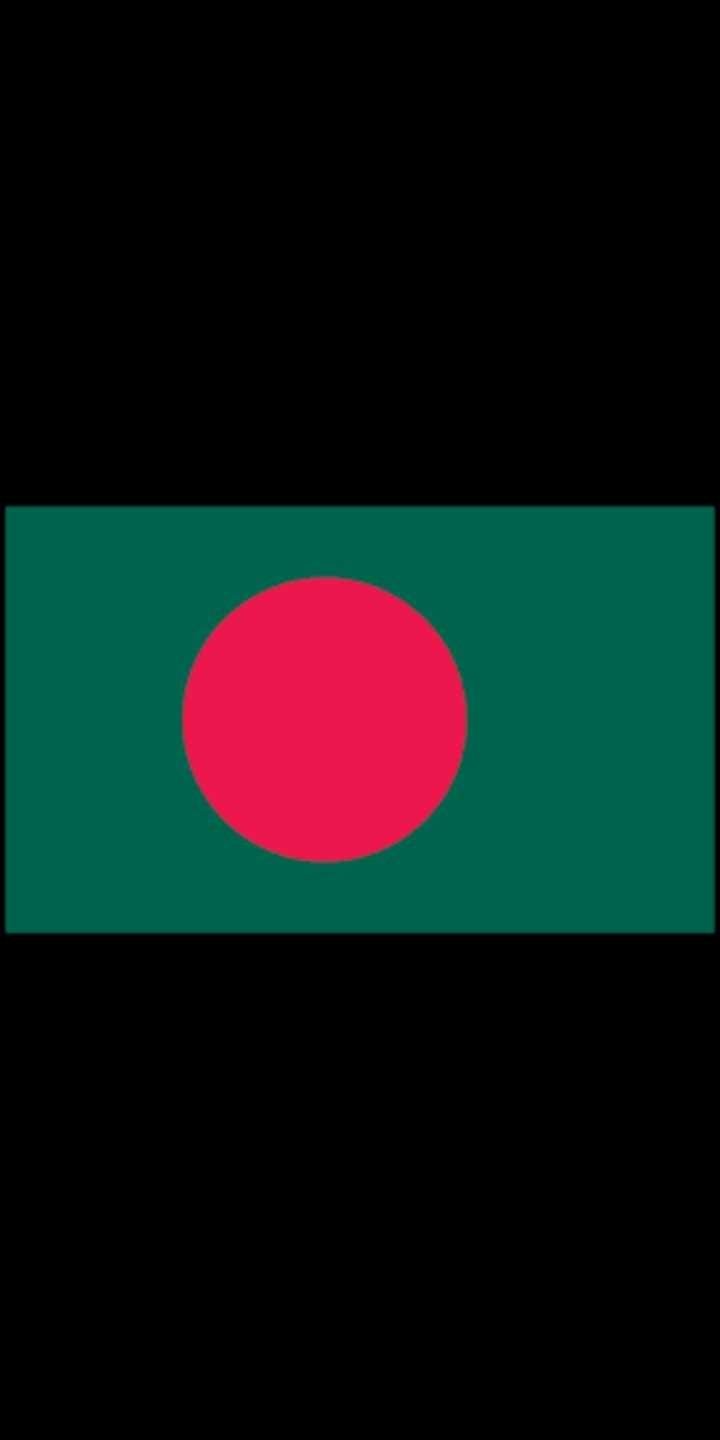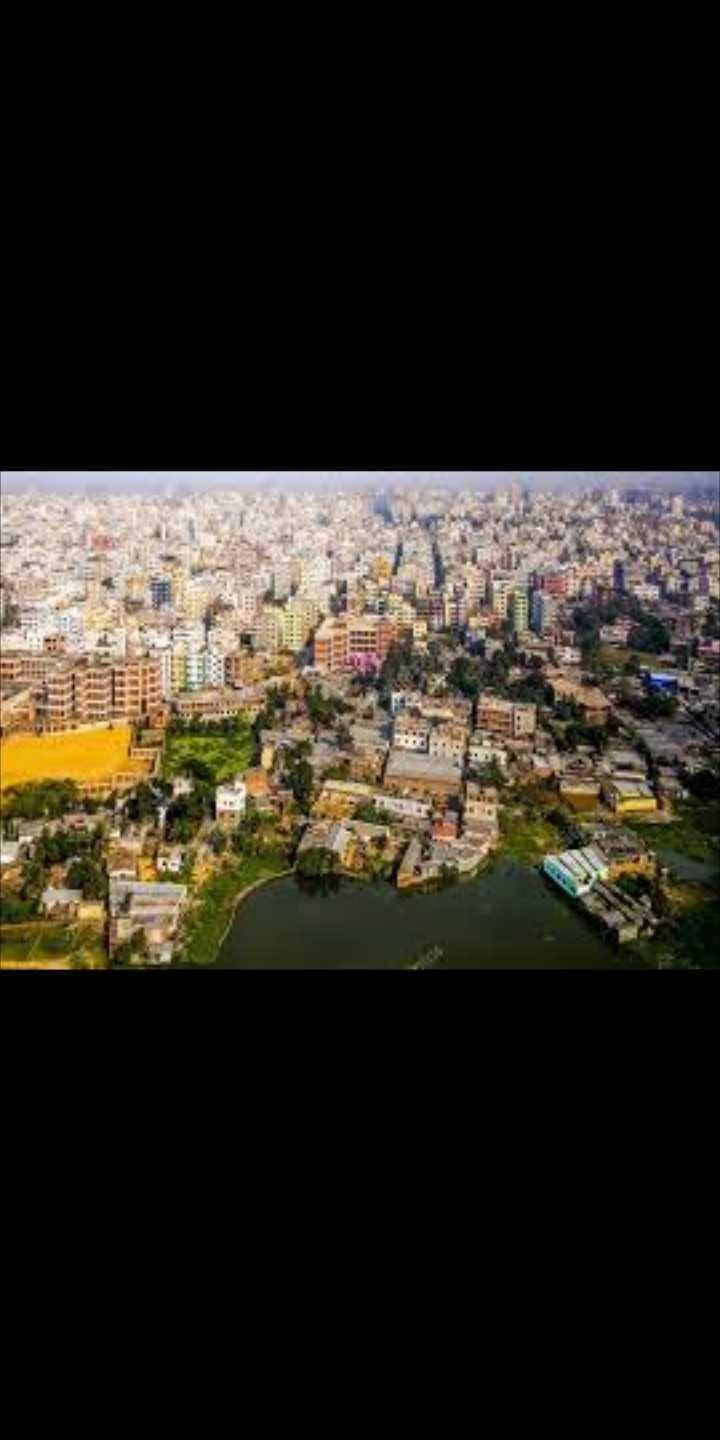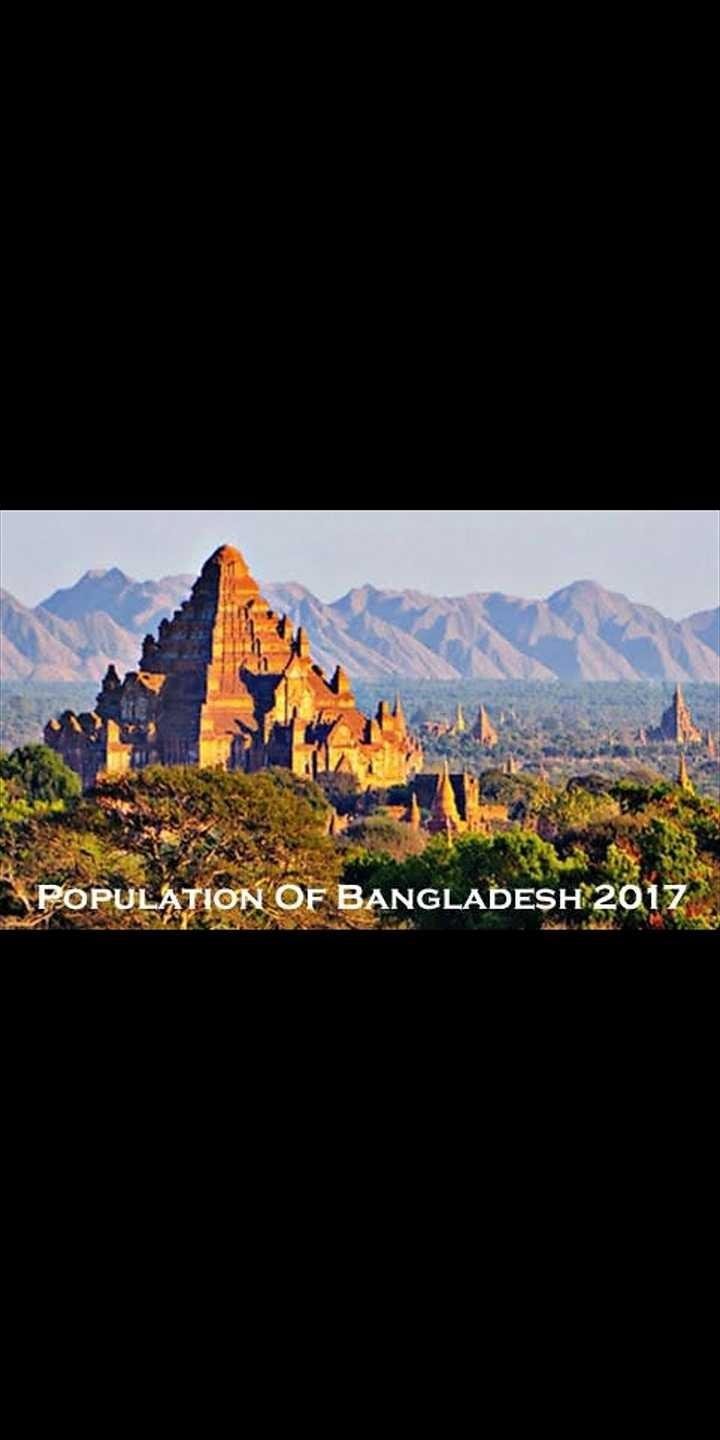Bangladesh (/ˌbæŋɡləˈdɛʃ, ˌbɑːŋ-/ (About this sound listen); Bengali: বাংলাদেশ Bangladesh [ˈbaŋladeʃ] (About this sound listen), lit. "The country of Bengal"), officially the People's Republic of Bangladesh (গণপ্রজাতন্ত্রী বাংলাদেশ Gônoprojatontri Bangladesh), is a country in South Asia. It shares land borders with India and Myanmar (Burma).The country's maritime territory in the Bay of Bengal is roughly equal to the size of its land area. Bangladesh is the world's eighth most populous country. Dhaka is its capital and largest city, followed by Chittagong, which has the country's largest port. Bangladesh forms the largest and easternmost part of the Bengal region. Bangladeshis include people from a range of ethnic groups and religions. Bengalis, who speak the official Bengali language, make up 98% of the population.[The politically dominant Bengali Muslims make the nation the world's third largest Muslim-majority country. Islam is the official religion of Bangladesh.


People's Republic of Bangladesh
গণপ্রজাতন্ত্রী বাংলাদেশ (Bengali)
Gônoprojatontri Bangladesh
Flag of Bangladesh
Flag
Emblem
Anthem: "Amar Sonar Bangla" (Bengali)
"My Golden Bengal"
March: "Notuner Gaan"
"The Song of Youth
Government Seal of Bangladesh
Seal of the Government of Bangladesh
Location of Bangladesh
Location of Bangladesh
Capital
and largest city
Dhaka
23°42′N 90°21′E
Official languages
Bengali[2]
Ethnic groups (2011
98% Bengalis
2% minorities
Chakmas
Biharis
Marmas
Santhals
Mros
Tanchangyas
Bawms
Tripuris
Khumis
Kukis
Garos
Bisnupriya Manipuris
Indians
Chinese
Religion (2011)
90.4% Islam (Official)
8.5% Hinduism
0.6% Buddhism
0.4% Christianity
Demonym
Bangladeshi
Government

Unitary parliamentary republic
• President
Abdul Hamid
• Prime Minister
Sheikh Hasina
• House Speaker
Shirin Chaudhury
• Chief Justice
Syed Mahmud Hossain
Legislature
Jatiya Sangsad
Formation and independence
• East Bengal
14 August 1947
• East Pakistan
14 October 1955
• Independence
26 March 1971
• Recognized
16 December 1971
• Constitution
4 November 1972
Area
• Total
147,570[5] km2 (56,980 sq mi) (92nd)
• Water (%)
6.4

Population
• 2016 estimate
162,951,560[6] (8th)
• 2011 census
149,772,364[7] (8th)
• Density
1,106/km2 (2,864.5/sq mi) (10th)
GDP (PPP)
2018 estimate
• Total
$751.949 billion[8] (31st)
• Per capita
$4,561[8] (139th)
GDP (nominal)
2018 estimate
• Total
$285.817 billion[8] (43rd)
• Per capita
$1,754[8] (148th)
Gini (2017)
Negative increase 32.4
medium · 19
HDI (2018)
Increase 0.608
medium · 136th
Currency
Taka (৳) (BDT)
Time zone
UTC+6 (BST)
Date format
dd-mm-yyyy
BS দদ-মম-বববব (CE−594)
Driving side
left
Calling code
+880
ISO 3166 code
BD
Internet TLD
.bd
.বাংলা
Website
bangladesh.gov.bd
This article contains Bengali text. Without proper rendering support, you may see question marks, boxes, or other symbols.
Most of Bangladesh is covered by the Bengal Delta, the largest delta on Earth. The country has 700 rivers and 8,046 km (5,000 mi) of inland waterways. Highlands with evergreen forests are found in the northeastern and southeastern regions of the country. Bangladesh has many islands and a coral reef. The longest unbroken sea beach of the world, Cox's Bazar Beach, is located in the southeast. It is home to the Sundarbans, the largest mangrove forest in the world. The country's biodiversity includes a vast array of plant and wildlife, including endangered Bengal tigers, the national animal.
The Greeks and Romans identified the region as Gangaridai, a powerful kingdom of the historical Indian subcontinent, in the 3rd century BCE. Archaeological research has unearthed several ancient cities in Bangladesh, which enjoyed international trade links for millennia. The Bengal Sultanate and Mughal Bengal transformed the region into a cosmopolitan Islamic imperial power between the 14th and 18th centuries. The region was home to many principalities that made use of their inland naval prowess. It was also a notable center of the global muslin and silk trade. As part of British India, the region was influenced by the Bengali renaissance and played an important role in anti-colonial movements. The Partition of British India made East Bengal a part of the Dominion of Pakistan; and renamed it as East Pakistan. The region witnessed the Bengali Language Movement in 1952 and the Bangladesh Liberation War in 1971.[18] After independence was achieved, a parliamentary republic was established. A presidential government was in place between 1975 and 1990, followed by a return to parliamentary democracy. The country continues to face challenges in the areas of poverty, education, healthcare and corruption.

Bangladesh is a middle power and a developing nation. Listed as one of the Next Eleven, its economy ranks 43rd in terms of nominal gross domestic product and 29th in terms of purchasing power parity. It is one of the largest textile exporters in the world. Its major trading partners are the European Union, the United States, China, India, Japan, Malaysia and Singapore. With its strategically vital location between South, East and Southeast Asia, Bangladesh is an important promoter of regional connectivity and cooperation. It is a founding member of SAARC, BIMSTEC, the Bangladesh-China-India-Myanmar Forum for Regional Cooperation and the Bangladesh Bhutan India Nepal Initiative. It is also a member of the Organisation of Islamic Cooperation, Commonwealth of Nations, the Developing 8 Countries, the OIC, the Indian-Ocean Rim Association, the Non Aligned Movement, the Group of 77 and the World Trade Organization. Bangladesh is one of the largest contributors to United Nations peacekeeping forces.
Etymology
Main article: Names of Bengal
The etymology of Bangladesh (Country of Bengal) can be traced to the early 20th century, when Bengali patriotic songs, such as Namo Namo Namo Bangladesh Momo by Kazi Nazrul Islam and Aaji Bangladesher Hridoy by Rabindranath Tagore, used the term. The term Bangladesh was often written as two words, Bangla Desh, in the past. Starting in the 1950s, Bengali nationalists used the term in political rallies in East Pakistan. The term Bangla is a major name for both the Bengal region and the Bengali language. The earliest known usage of the term is the Nesari plate in 805 AD. The term Vangaladesa is found in 11th-century South Indian records.
The term gained official status during the Sultanate of Bengal in the 14th century.[23][24] Shamsuddin Ilyas Shah proclaimed himself as the first "Shah of Bangala" in 1342. The word Bangla became the most common name for the region during the Islamic period. The Portuguese referred to the region as Bengala in the 16th century.
The origins of the term Bangla are unclear, with theories pointing to a Bronze Age proto-Dravidian tribe,[26] the Austric word "Bonga" (Sun god),and the Iron Age Vanga Kingdom. The Indo-Aryan suffix Desh is derived from the Sanskrit word deśha, which means "land" or "country". Hence, the name Bangladesh means "Land of Bengal" or "Country of Bengal".

Also know Bangladesh https://www.google.com/search?q=bangladesh&source=lmns&tbm=vid&client=ms-android-huawei&prmd=imnv&biw=360&bih=655&hl=en&ved=2ahUKEwjw4cWerp7eAhUCtI8KHUDfACUQ_AUoBHoECAAQBw
Source (copy)
Posted using Partiko Android
Congratulations @sohel333! You have completed the following achievement on the Steem blockchain and have been rewarded with new badge(s) :
Click here to view your Board of Honor
If you no longer want to receive notifications, reply to this comment with the word
STOPTo support your work, I also upvoted your post!
Do not miss the last post from @steemitboard: